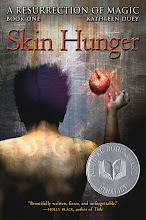The sessions have been amazing. Each writer provided ten pages and a synopsis. I read each ms carefully and marked up the pages with comments and suggestions. Then we scheduled a phone or Skype appointment.
At conferences, even the ones I love best, there is always a hurried feeling. This time, I could focus on the work, not the clock. We began by talking about the author's intent. Then we did a line by line examination of the 10 pages/synopsis. Once I understand what a writer is trying to create, I can focus on character voice, how to gracefully salt in backstory, build a seamless movie in the reader's mind, make sure the plot works, etc, etc...tailored for each writer. I always give concrete examples to support concepts and try to make sure everything is useful and tied to each writers' current work. With a longer session, I could do all of that MUCH better. I can't describe how lovely it has been. I have never done crits like this, without a conference as the backdrop. Each one was targeted and long enough to teach, instead of explain, writing skills.
 |
So thanks to everyone who has been in touch. Yes, I am doing longer format critiques when I can fit them in. As much as I love to teach, I love writing far more, so I am sometimes unavailable. For rates, choices and all other details, you can contact me at kathleen duey at earthlink dot net
*I feel compelled to add--I will send you the info and never bother you again. I only do a few critiques a month--and sending out the info to those who request it is NOT a way to build a mailing list. You will never hear from me again. I promise. I don't want a lot of critiques. I want to work with a few serious writers and save them all a couple of years.
****Almost every critique so far begins with a discussion of voice. One writer I helped just sent me a redone/re-imagined first page. The voice is **astonishing.** ((yay!))
*** Yes, I can evaluate a manuscript written for adults. Half my fan mail comes from adults. I am an adult. The writing skills needed for YA storytelling are the same as those needed to produce stories for adults.
*** Long session yesterday and it was like watching a flower bloom. Lovely!
***Two more long sessions...it is so much fun to watch people light up when I point out the places where the text fails the story and they begin to see how a word, two words, can make all the difference.
*** A great session with a writer who had created a really interesting premise, then got lost in the woods trying to do re-writes. We spent most the time relocating the core of the story, then finding ways to salt it into the shadows, the daily life of the character, the escalating uneasyness of the reader.
Photo by Roxyanne Young, author and friend...taken in San Louis Obispo 2012. I got to teach two three hour sessions with published and prepublished authors. It was fun!
***Someone has asked if I am a harsh critiquer. NO. I'm a writer. I have friends who beta read my work before my editors see it. I know how it feels to hold your breath while someone reacts to your manuscript. I tell the truth, yes. Always. And I try to make it so that you can apply whatever skill we are addressing to everything you write from then on.
Me. Closing speaker for the SCBWI international LA conference, staring out at 1200 writers and hoping to say at least one thing they could take home and USE.




